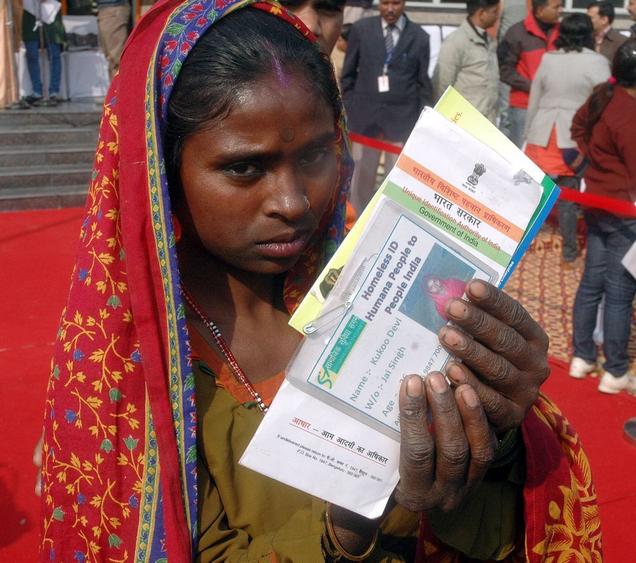Brandon Turbeville
Infowars.com
January 12, 2012
Infowars.com
January 12, 2012
 Over the past few months, I have written several articles dealing with the coming cashless society and the developing technological control grid. I also have written about the surge of government attempts to gain access to and force the use of biometric data for the purposes of identification, tracking, tracing, and surveillance.<
Over the past few months, I have written several articles dealing with the coming cashless society and the developing technological control grid. I also have written about the surge of government attempts to gain access to and force the use of biometric data for the purposes of identification, tracking, tracing, and surveillance.<
Unfortunately, the reactions I receive from the general public are almost always the same. While some recognize the danger, most simply deny that governments have the capability or even the desire to create a system in which the population is constantly monitored by virtue of their most private and even biological information. Others, either gripped by apathy or ignorance, cannot believe that the gadgets given to them from the massive tech corporations are designed for anything other than their entertainment and enjoyment.
However, current events in India should serve not just as a warning, but also as a foreshadowing of the events to come in the Western world, specifically the United States.
Recently, India has launched a nationwide program involving the allocation of a Unique Identification Number (UID) to every single one of its 1.2 billion residents. Each of the numbers will be tied to the biometric data of the recipient using three different forms of information – fingerprints, iris scans, and pictures of the face. All ten digits of the hand will be recorded, and both eyes will be scanned.
The project will be directed by the Unique Identification Authority of India (UIDAI) under the premise of preventing identity theft and social welfare fraud. India has rather extensive social welfare and safety net programs, ranging from medical support and heating assistance to others aimed at helping the poor. Fraud is a rampant problem in India, especially in relation to these programs due to a preponderance of corrupt politicians and bureaucrats who often stuff welfare rolls with fake names and take the money for themselves.
Yet, although the justification for the billion person database is the increased ability to accurately disperse social welfare benefits, it will not be just the Indian government’s social welfare programs that have access to and utilize the UIDAI. Indeed, even before the program has been completed, major banks, state/local governments, and other institutions are planning to use the UIDAI for identification verification purposes and, of course, payment and accessibility.

No comments:
Post a Comment